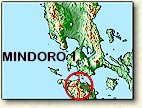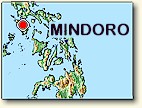|
On one
occasion our “F” Company first sergeant brazenly walked into the QM dump,
stepped into a truck waiting to be unloaded, and drove off. Of all
things, the truck was loaded with canned fruit, mostly cherries.
Undismayed, he and his cohorts set about building a still to make a
distilled liquor. After scrounging around the big sugar mill and other
places for parts, including copper tubing, they built an apparatus and
soon were producing a potent drink. One thing could be said for sure
about the cherry flavored brew, was that those who drank some of it would
never forget it. It must have been 180 proof.
One night a
sergeant from "E" Company came to our tent and motioned for me to come
outside. When I came out he asked, "Lieutenant, do you want a case of
beer?"
Even though I knew the
sergeant well I could not believe this, but I replied that I did. He
took me over to a parked deuce and a half, jumped up on the bed, and
slid a case of beer back to me. The next day we heard that a crime had
been committed the night before. As a truck was pulling away from the M.P. check point near the beach, a soldier had stepped up on the running
board and into the passenger side of the truck. He was armed with a .45
caliber pistol and had the driver stop and get out. Then he drove off
into the night. Those of us who knew the sergeant well knew he was no
criminal. He was a kind and just man, looking out for the welfare of
his fellow comrades.
We were
getting too settled, so a change must be in the making. Beside training
everyday brings on a restlessness for action. The unit was in peak
condition and ready for combat.
Our
battalion surgeon, Doctor "Doc" Charles H. Bradford had a new assistant.
1st Lt. Charles Donus had joined us just before we left Leyte, bound for
Mindoro. He was a free spirit. For the landing he packed his musette bag
with bottles of booze. After the landing when "Doc" Bradford became aware
of this he was shocked. Doc was a real soldier and such behavior did not
fit his pattern of soldierly behavior.
After we set
up our camp we bathed and washed our clothing in the Bugsanga River. The
river was wide and shallow, but the waters were swift and clear. One day
Dr. Donus lost his fatigue trousers in the swift current, and they were
last seen heading west toward the sea. Some of the jokers immediately
went to our aid station and told Doc that he should head for the river
quickly because his latest assistant had flipped, too. They said that
Donus had thrown his pants in the river and was running around half
naked. What really made the story more plausible was that back at
Dobodura, Doc's assistant at that time had suffered a mental breakdown,
had to be restrained, and shipped out. Moreover, this new assistant goes
into a beach landing assault against unknown enemy capabilities with no
personal belongings, just whiskey. Doc, of course, left immediately and
met Donus coming along the trail heading for the cantonment area 'sans coulette.'
For a short time each doctor seemed to question the other's
sanity.
Doc always
reacted with kind forbearance, much like a father toward mischievous
children. Of all the men in our battalion, Doc was the most loved and
respected. This gentleman was a friend of all - private, non-com,
lieutenant, captain, and field grade. When I say gentleman, I use the
most appropriate word for he is a true gentleman. When I read of George
Washington and Robert E. Lee and other famous gentleman I am reminded of
Charles Bradford. He certainly carries on the great tradition of the
William Bradford family.
As a medical
doctor he specialized in orthopedic surgery, possessing unusual ability
in this field. There are still old 503d'ers with all their arms and legs
who would have lost one or more were it not for the great skill and
competence of Doc. Ask Richard Lampman, Herb Elmore, and so many others.
Great
soldier, skilled surgeon, "real" gentleman Doc. was still much more. He
was
one of the most educated men I have ever known. Doc's knowledge included
the classics, history, and philosophy. He had a naturally inquisitive
mind and sought to find out about everything surrounding him. A good
example of his inquisitiveness was shown when the story came out about
"Commando" Kelly winning the Congressional Medal of Honor. One of the
weapons he used, according to the news, was 60mm mortar shells for
hand-grenades.
We had a lively discussion
over whether a man could slam a 60mm shell against the ground hard
enough to cause the safety mechanism to deactivate, thus arming the
round. While we talked, Doc took some rounds out into the forest and ran
his own tests. For the life of me I cannot remember the results. Being a
friend of this great man is cherished by me.
Charles Donus was a very
competent, hardworking doctor who served us well. We appreciated him. He
was much like us in finding fun where he could.
For a few
days we had time for recreation on the flat, dusty plains of Mondoro. I
can still see Al Turinsky, John Britten, Lawson Caskey, Tom McNerney and
so many of our battalion officers on the volleyball court. We played
touch football, too. There were movies every night. We had to be hard up
for entertainment to sit through some of them. As the war progressed the
movies seemed to grow ever more poor.
|
![]()
![]()









